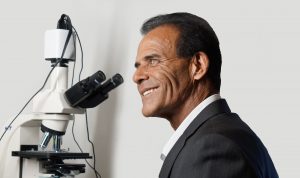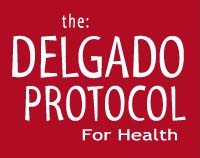Is Male Menopause Silently Sabotaging Your Health, Happiness, and Sexuality?
Andropause, or male menopause, is the term used to describe a set of symptoms and risks that occur from a testosterone deficiency. It typically occurs in men aged 50 and over, however, not all men are affected by it. Once detected, andropause is easily treated with supplements, lifestyle modifications, and/or testosterone replacement therapy. Unfortunately, however, andropause is rarely identified, which means countless men are suffering with it unnecessarily. Acquainting yourself with the causes, symptoms and treatment of andropause will help to ensure you don’t become one of them.
Why Andropause Is Rarely Identified
Andropause often goes unrecognized because the symptoms tend to appear very gradually, and many men dealing with it dismiss the symptoms as a normal part of aging. Also, many andropause symptoms mirror those associated with medications or disease states common in the elderly, and the possibility that the symptoms are caused by a testosterone deficiency is never even considered. Finally, many men are reluctant to go to the doctor, and aren’t completely honest with their physicians when they do.
Andropause: A Modern Day Disease
 Testosterone levels begin to gradually decline in men at the age of 30. This gradual, age-related reduction of testosterone may not have caused any problems in our evolutionary past, however studies show that the total testosterone levels in men of all ages dropped a whopping between 1987 and 2004, and has likely continued to decline since then. Since men have less testosterone to start-off with, even a slight age-related decline, can be enough to tip the hormonal scales, and trigger andropause.
Testosterone levels begin to gradually decline in men at the age of 30. This gradual, age-related reduction of testosterone may not have caused any problems in our evolutionary past, however studies show that the total testosterone levels in men of all ages dropped a whopping between 1987 and 2004, and has likely continued to decline since then. Since men have less testosterone to start-off with, even a slight age-related decline, can be enough to tip the hormonal scales, and trigger andropause.
The Estrogen and Andropause Connection
Another reason why andropause is becoming increasingly common is because modern-day advances have forced us to live in an environment that is full of xenoestrogens (estrogen-like compounds). Xenoestrogens are inescapable and they mimic estrogen in the body, causing estrogen to be too high, in relation to testosterone. Hormones need to be maintained in a delicate balance and when the ratio of estrogen-to-testosterone goes up, testosterone deficiency symptoms can appear, even if testosterone levels are technically in the ‘normal’ range.
Andropause Symptoms:
- Mental and/or physical fatigue
- Brain fog or memory problems
- Irritability, moodiness, or emotional hypersensitivity
- Insomnia
- Loss of motivation
- Loss of libido
- Increased body fat, and reduced muscle mass
- Back pain
- High cholesterol
- Breast enlargement (gynecomastia)
- Gastrointestinal issues
Andropause Increases the Risk for:[i]
- Erectile dysfunction
- Infertility or reduced sperm count
- Osteoporosis
- Sudden death from a heart attack
- Depression
- Obesity
- Diabetes
- Prostate cancer
Supplements For Andropause
#1: Testosterone Boosting: Since hormones work synergistically, if you suspect that you are suffering with andropause then you should have all of your sex hormones tested. If low testosterone is revealed, a supplement, such as Testro-Vida, can be enormously helpful. It contains zinc which helps to boost testosterone in deficient males; and close to 20 different herbs that reduce the symptoms and many of the risks associated with low testosterone levels.[ii] Several of the herbs in Testro-Vida also have potent anti-aging and anti-disease properties, and help to boost sexual performance and function. http://www.delgadonaturals.com/testro-vida-pro/
#2: Estrogen Lowering: As mentioned above, when estrogen levels become too high in relation to testosterone levels, testosterone deficiency symptoms and risks can result. Have your physician use a urine test to measure all 3 of the main estrogen metabolites, and if estrogen levels are high, take an estrogen clearing supplement such as EstroBlock. EstroBlock contains a proprietary blend of clinically proven ingredients to help neutralize and remove toxic estrogens from your body. http://www.delgadonaturals.com/estro-block
Testosterone Replacement Therapy
For severe cases, testosterone replacement therapy (TRT) can be used either adjunctively with supplements, or on its own. If you’ve heard the bad press surrounding the safety of TRT, worry not. Although a few studies concluded that TRT is unsafe and that it boosts heart disease, stroke and death risk; these studies were poorly designed. The majority of these studies used too high of a testosterone dose, they failed to properly monitor hormone levels throughout the study; and/or they did not ensure patient compliance. There are literally hundreds of scientific studies that show that TRT is completely safe and can have massive health benefits, so long as it’s done under the supervision of a qualified healthcare professional who closely monitors testosterone levels throughout the therapy.
The Integrative Solution
An integrative approach to andropause, which includes diet, exercise and lifestyle modifications, will help make hormone therapy work more effectively (and oftentimes can even eliminate the need for hormone therapy). Shift your diet towards whole, plant-based foods, composed primarily of vegetables, fruits, wholegrains, nuts and seeds. Vastly reduce or eliminate vegetables oils, sugar, processed foods, and all animal products (because they are extremely estrogenic).
Include a combination of high-Intensity exercises and strength training, and make sure to exercise for at least 300 minutes a week. Also, be sure to lose any excess body weight, lower stress levels, and optimize zinc and vitamin D levels.[iii] Finally, reduce your exposure to xenoestrogens by: eating organic produce, using a water filter for drinking and bathing; switching to all-natural detergents, cleaning and skincare products; and using glass bottles and food storage containers. Give your body a few months to balance itself out, and you’ll be rewarded with a level of health, vitality, strength, and sexual vigor that you have not experienced since your youth!
To watch the video to which this article was based off of in its entirety: https://www.youtube.com/watch?v=fz4vGTN1BS4
[i] http://care.diabetesjournals.org/content/34/7/1669
[ii] https://www.ncbi.nlm.nih.gov/pubmed/8875519
[iii] http://fitness.mercola.com/sites/fitness/archive/2012/07/27/increase-testosterone-levels.aspx





